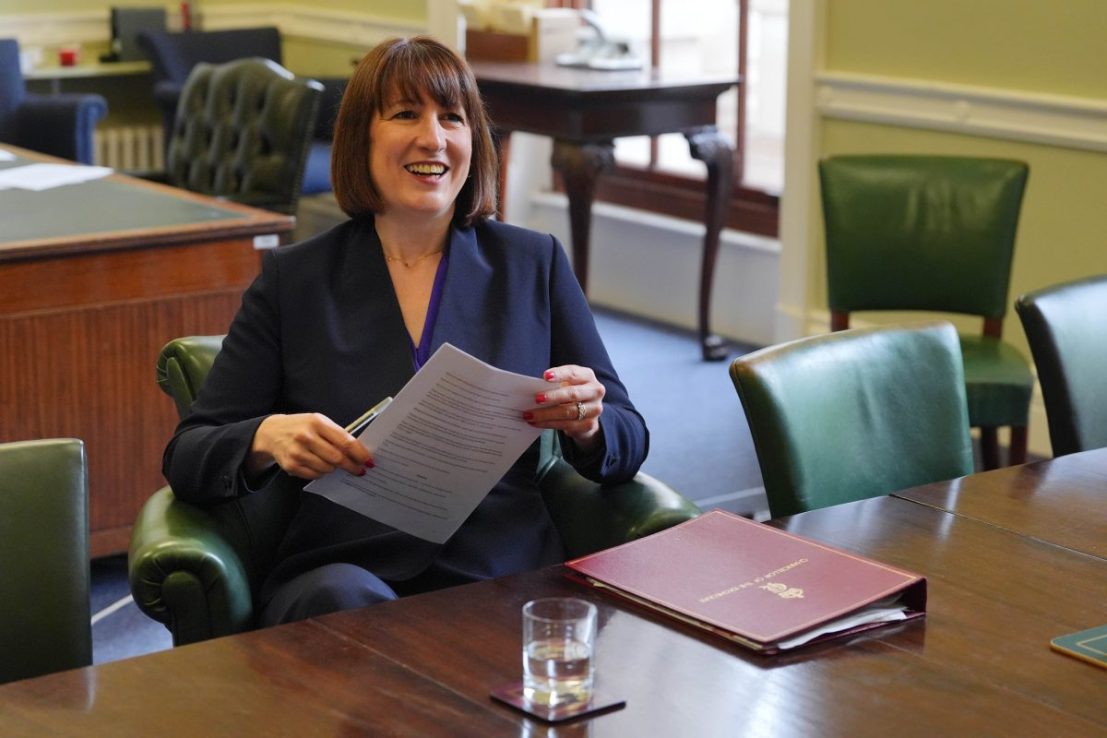
Next has cast a shadow over the retail sector after warning of the “serious” impact of recent UK Budget measures and the likelihood of price hikes for shoppers. The high street bellwether, which trades from more than 30 stores in Scotland, said it was facing a £67 million surge in its wage costs in the year to January 2026 - rising to £73m for a full year’s impact - after the Labour Government announced plans to increase employers ’ national insurance contributions and the minimum wage from this April. It said it will need to push through an “unwelcome” 1 per cent rise in prices as part of efforts to help offset the hit.
Next also warned that sales growth will pull back sharply over the year ahead as the Budget measures - which both take effect in April - impact the wider jobs market and send prices rising across the economy. The group’s cautious outlook came despite it reporting a better-than-expected 5.7 per cent rise in underlying full-price sales for its fourth quarter so far, while upping its full-year pre-tax profit outlook once again, pencilling in a 10 per cent jump to just over £1 billion.

This compares with previous guidance for a 9.5 per cent rise. But over the new financial year to January 2026 , it expects sales growth to slow to 3.
5 per cent and for group profits to increase by a more muted 3.6 per cent to £1.05bn.
Next has added to a growing list of firms alerting over price rises to combat cost increases, while the British Chambers of Commerce said earlier this week that more than half of companies are planning to lift prices over the next three months due to cost pressures. Lord Simon Wolfson, Next’s chief executive and a Conservative peer, said that consumer confidence is likely to be dented later in the year as the full effects of October’s Budget measures are felt by businesses. He said employers with part-time and low wage workers will be disproportionately affected by the moves, as costs will rise more steeply for these employees.
“We’re not looking at a dramatic increase in unemployment but...
it’s these jobs that are most likely to be lost in the economy,” he said. Wolfson stressed that for Next, it was “not a meltdown situation”. He added: “The cost increases are serious, but with a combination of price increases, efficiencies and cost savings, we can still grow profits in line with sales.
” Wolfson said Next would not be cutting jobs through redundancies, but confirmed it would take on fewer workers than normal in the year ahead across its warehouses and retail stores. Some of this will come as it brings on stream more high-tech warehouses, while it will also not replace some workers when they leave. Next told investors: “We believe that UK growth is likely to slow, as employer tax increases, and their potential impact on prices and employment, begin to filter through into the economy.
” It also warned that overseas sales growth - which had surged to 24 per cent in 2024-25 - will fall back as it reins in marketing spend after investing heavily in this over the past year. “We do not believe we can profitably increase our overseas marketing expenditure by the same percentage next year, and expect the growth to be closer to 20 per cent,” it noted. The firm said an expected 1 per cent increase in prices will offset around £13m of its higher wage bill.
It will look to make overall savings of £23m in the face of the cost increase, with measures also including “improved working practices and other operational efficiencies in our warehouses, distribution networks and stores”. Adam Vettese, market analyst at investment platform eToro, said Next had delivered a “late present to shareholders” after the solid Christmas trading. “As if a billion-pound profit for the year wasn’t enough, Next has gone and nudged the dial again, increasing the full-year profit outlook for the fourth time in the space of half a year,” he noted.
“There will be challenges ahead, particularly with a huge cost increase, predominately from increased national insurance and wage cost inflation. The company seems to have a robust plan to offset these costs with improved operational efficiencies, sales increase and price increases. “Whilst raising prices might cause concern that it could come at the expense of losing customers, this will be a small 1 per cent hike, less than the 2 per cent Bank of England inflation target.
” Julie Palmer, a partner at Begbies Traynor, described the fall in the growth rate at Next’s retail stores as “concerning”, saying it was “yet another ominous sign for the health of the UK’s high streets”. She added: “Most worrying is Next’s belief now that UK growth is likely to slow. For a business with the scale and resources of Next, it will be more than able to navigate a stagnant UK economy, but in a scenario where customers continue to refrain from discretionary spending and prices continue to rise for businesses, the new year will be pretty uncomfortable for other operators.
“Sadly, if we do not see a significant change in fortunes for the sector, it is highly likely that we will see a surge in retailers announcing redundancies, closing stores and ultimately failing in 2025.” Next is one of the first major non-food retailers to report on its festive trading performance ahead of an expected flurry of updates..















